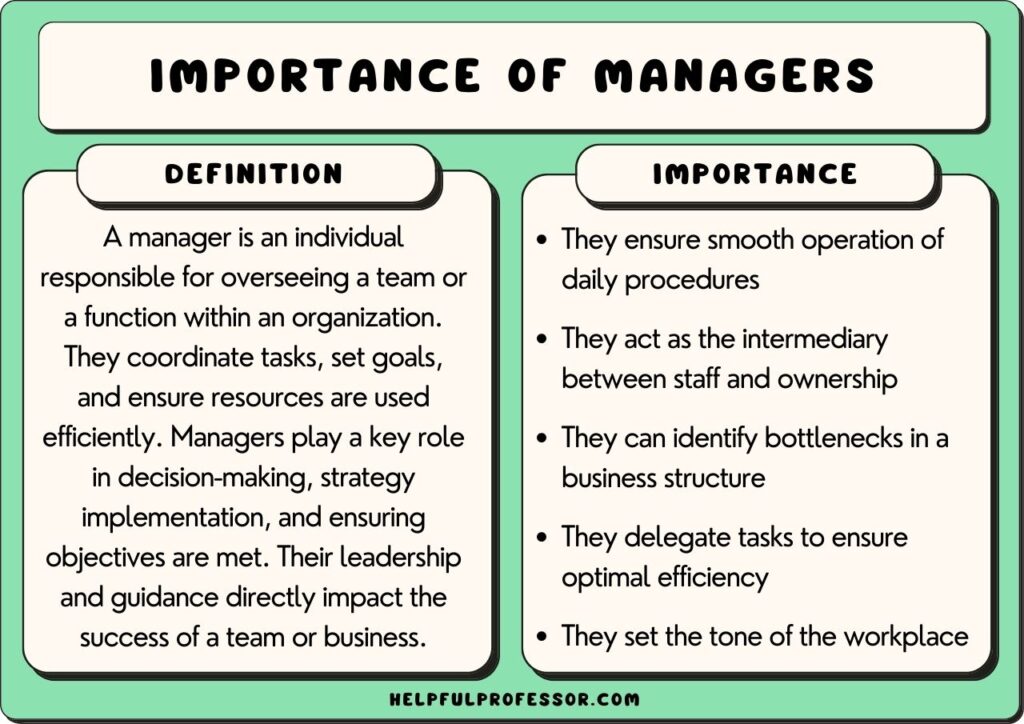Understanding The Importance Of Middle Managers In Today's Workplace

Table of Contents
Bridging the Gap Between Leadership and Employees
Middle managers act as a vital link between senior leadership and frontline employees. They translate strategic directives into actionable plans, ensuring everyone understands their roles and responsibilities. This crucial bridging function directly impacts employee engagement and overall workplace productivity.
-
Effective communication: Middle managers facilitate two-way communication, relaying information from upper management and gathering feedback from employees. This ensures transparency and prevents misunderstandings, fostering a more collaborative work environment. They are the key to translating complex corporate strategies into clear, actionable tasks for their teams.
-
Improved employee engagement: By providing clear direction, support, and regular feedback, middle managers boost employee morale and engagement. When employees understand expectations and feel supported, they are more likely to be motivated and productive. This translates into higher retention rates and improved performance.
-
Streamlined delegation: Effective middle managers skillfully delegate tasks, empowering employees and ensuring fair workload distribution. This not only increases efficiency but also helps develop employees' skills and confidence, contributing to their overall growth within the organization. Delegation is a key skill for any successful middle manager.
Driving Operational Efficiency and Productivity
Middle managers play a crucial role in optimizing daily operations and boosting team productivity. They implement strategies to improve workflows, enhance efficiency, and address bottlenecks, directly impacting the bottom line.
-
Performance monitoring and improvement: They monitor individual and team performance, identifying areas for improvement and providing necessary support and training. This proactive approach helps prevent problems from escalating and ensures consistent high performance.
-
Resource allocation: Middle managers manage resources effectively, ensuring teams have the tools, technology, and support they need to succeed. This includes allocating budgets, managing schedules, and securing necessary resources. Efficient resource allocation is essential for maximizing productivity.
-
Process optimization: They identify inefficiencies and implement solutions to streamline workflows. This might involve introducing new technologies, revising existing processes, or simplifying complex tasks. Continuous process improvement is a hallmark of effective middle management.
Fostering a Positive and Supportive Work Environment
Middle managers are responsible for creating a positive and supportive work environment where employees feel valued and motivated. They act as mentors, guiding and supporting their team members' professional development. A positive work environment is crucial for attracting and retaining top talent.
-
Mentorship and coaching: Middle managers provide guidance, coaching, and support to help employees grow professionally. This includes offering constructive feedback, identifying training needs, and providing opportunities for advancement.
-
Team building activities: They organize activities to foster collaboration and camaraderie within the team. Building strong team relationships improves communication, cooperation, and overall morale.
-
Conflict resolution: Effective middle managers address and resolve conflicts within the team fairly and efficiently, preventing disputes from negatively impacting productivity and morale.
Essential for Talent Development and Retention
Middle managers are key players in attracting, developing, and retaining talent. Their ability to mentor and support employees contributes directly to employee satisfaction and reduced turnover. Investing in middle management training is an investment in employee retention.
-
Identifying and nurturing talent: They identify high-potential employees and provide opportunities for their growth. This includes assigning challenging projects, providing mentorship, and advocating for promotions.
-
Providing training and development opportunities: They ensure employees receive necessary training to enhance their skills and stay current with industry best practices. This proactive approach keeps employees engaged and improves their performance.
-
Succession planning: Middle managers contribute to succession planning by identifying and developing future leaders within their teams. This ensures a smooth transition of responsibilities and maintains organizational stability.
Conclusion
The significance of middle managers in today's workplace cannot be overstated. They are the backbone of many organizations, bridging the gap between leadership and employees, driving operational efficiency, and fostering a positive work environment crucial for talent development and retention. By understanding and investing in the development of strong middle management, organizations can significantly improve their overall performance and achieve sustained success. Invest in your middle managers today to unlock the full potential of your workforce and build a more productive and successful future. Effective middle management is not just important – it's indispensable for organizational success.

Featured Posts
-
 Kansas City Royals Bullpen Featuring Cole Ragans Triumphs Over Milwaukee Brewers
Apr 23, 2025
Kansas City Royals Bullpen Featuring Cole Ragans Triumphs Over Milwaukee Brewers
Apr 23, 2025 -
 Amandine Gerard Je T Aime Moi Non Plus Entre L Europe Et Les Marches
Apr 23, 2025
Amandine Gerard Je T Aime Moi Non Plus Entre L Europe Et Les Marches
Apr 23, 2025 -
 Lumina Gold Sold To Chinas Cmoc For 581 Million Analysis Of The Transaction
Apr 23, 2025
Lumina Gold Sold To Chinas Cmoc For 581 Million Analysis Of The Transaction
Apr 23, 2025 -
 Conges Scolaires 2025 Wallonie Bruxelles Dates Officielles Et Conseils Pour Vos Vacances
Apr 23, 2025
Conges Scolaires 2025 Wallonie Bruxelles Dates Officielles Et Conseils Pour Vos Vacances
Apr 23, 2025 -
 Suriye De Ramazan Bayrami Tarihi Onaylandi Pazartesi Bayram Sevinci
Apr 23, 2025
Suriye De Ramazan Bayrami Tarihi Onaylandi Pazartesi Bayram Sevinci
Apr 23, 2025
